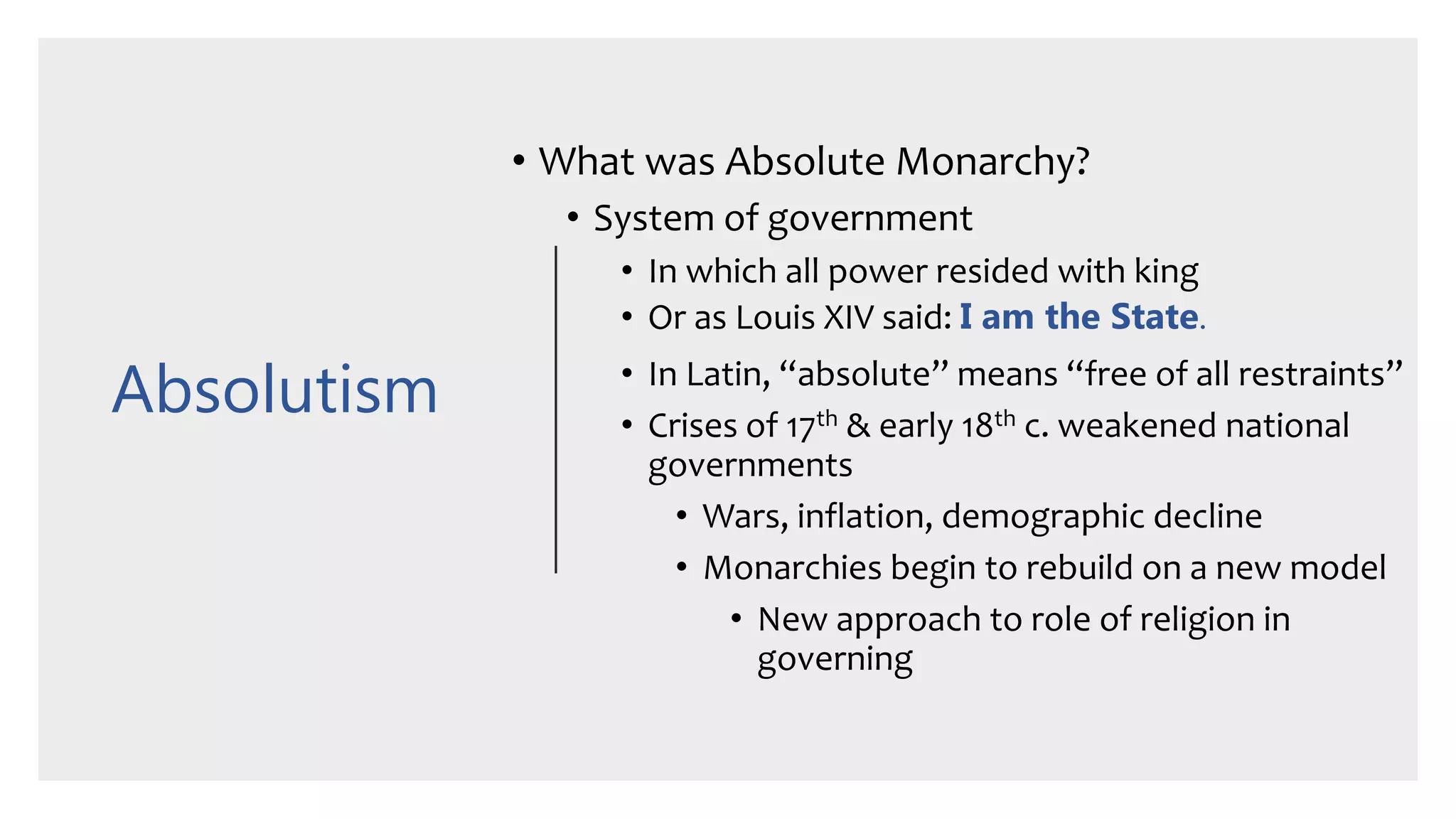Absolute monarchy developed in 17th century Europe as monarchs sought to consolidate power. The document discusses the emergence of absolutism in France and Sweden. In France, Louis XIV established an elaborate court at Versailles to centralize power around himself as the embodiment of the state. He asserted control over the nobility and clergy. In Sweden, Gustavus Adolphus and Charles XI created powerful central bureaucracies that diminished the power of the nobility and established the monarchs as the sole rulers.






![Absolutism
• James I in speech to Parliament, 1610:
The state of monarchy is the supremest thing upon earth, for kings are
not only God's lieutenants upon earth and sit upon God's throne, but
even by God himself they are called gods. …
… In the Scriptures kings are called gods, and so their power after a
certain relation compared to the Divine power. Kings are also compared
to fathers of families; for a king is truly parens patriae [parent of the
country], the politic father of his people. And lastly, kings are compared
to the head of this microcosm of the body of man.](https://image.slidesharecdn.com/8-absolutemonarchyspr20-200427001408/75/8-Absolute-Monarchy-7-2048.jpg)





























































